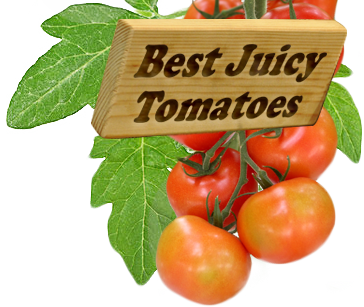Bees Improve Our Tomato Crops but are Threatened With Extinction
30 Jan
Bees are creating a major buzz worldwide. But it’s not all good.
While bee-lievers spread the word in terms of the valuable pollination “services” bees provide, internationally circulated news reports state that billions of bees are being destroyed by pesticides. The result is a worldwide petition to force the European Union to ban the most poisonous pesticides that are threatening some bee species with extinction.
The Good: How Bees Can Help Tomatoes
In parts of Australia, word has it that blue-banded native bees, Amegilla chlorocyanea, are doing a particularly sterling job that results in a huge increase of tomato seeds being produced. They are much more efficient than common bumblebees, which are, in turn, considerably more efficient than honey bees that don’t a very good job at all. This is largely because the buzzing sound that blue-banded native bees produce has such tremendous force (it’s been measured at a frequency of 450 Hz). The effect of the soundwaves shakes pollen out of the tomato flower tips, so that much more pollen can be distributed between the male and female “organs” in the flower. Further, some pollen will stick to the bees, and when they go to other plants, they will successfully cross-pollinate the tomatoes.
Tomatoes are often described as “self-pollinating” plants, because they have both male and female organs. But in fact it needs some kind of movement for the pollen to be released. Wind plays a role, but when commercial growers propagate tomatoes, they help the pollination process with special vibrating wands. You can do the same thing quite successfully with an electric toothbrush.
When bees do this job, we call it “buzz pollination”.
According to Katja Hogendoorn, who is an entomologist and native bee expert working at Adelaide University, when tomato plants are pollinated by buzz-pollinating bees, more pollen lands on the stigma. This, she says increases the number of seeds produced, and ultimately results in juicier, tastier tomatoes.
Of course you might not be producing tomatoes for seed. Most of us grow tomatoes for the fresh, juicy fruit rather than seed. But a good reason for saving tomato seed is to ensure that you continue to grow an open-pollinated variety.
To attract buzz-pollinating blue-banded bees to your tomato patch, Dr Hogendoorn suggests planting various different species during the year, so that one or other type is always flowering. She also advises gardeners to avoid insecticides, or at least use them sparingly, and to leave bare soil around the plants (or nearby in the garden) for bees to nest. You will also attract more blue-banded bees if you plant English lavender or Duranta – a good companion planting tip. The reason for this is that tomatoes do not produce nectar – which attracts bees – but lavender and Duranta do.
The Bad: World Threat to Bees
There has been an alarming decline in the world’s bee populations in recent years. According to researchers, some species in the US are already extinct.
Toxic neonicotinoid pesticides are being blamed for the situation, and several European Union countries (including France, Germany, Italy and Slovenia) have already banned at least one type.
While the giant pesticide producers lobby to keep their deadly products on the world market, in January 2013 the global web movement, Avaaz (a word that means voice in several Asian, European and Middle Eastern languages), used powerful social networks to get at least 2,5-million people to sign a petition in an attempt to force the EU to ban “these crazy poisons”, and in this way initiate a worldwide ban. In just one 36-hour period, they attracted 750,000 signatories, and as the clock ticked to their deadline, someone somewhere in the world was signing pretty well every second.
“If we build a huge swarm of public outrage now, we can push the European Commission to put our health and our environment before the profit of a few.”
The next step will be to force US authorities to follow the example of the European Union to ensure that bees continue to pollinate tomatoes.
Growing you own tomatoes is the best way to ensure you always have tomatoes on hand. How To Grow Juicy Tasty Tomatoes is our book that gives instructions on how to grow the most delicious tomatoes!











